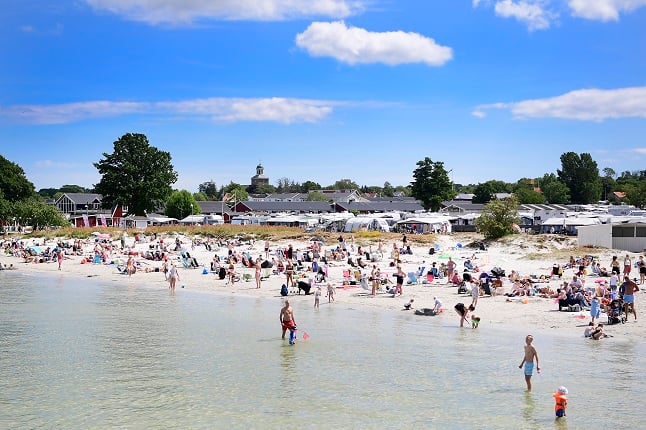“At the end of the summer, we may get an increased strain on the healthcare sector if distance isn't kept and the restrictions aren't respected,” said the Public Health Agency's general director Johan Carlson at a press conference in early July.
He warned that it was especially important for young people to continue following the restrictions.
“It's unreasonable to think you can live as normal if you aren't in a risk groups while others have to keep distance,” he said.
While the larger cities in Sweden tend to empty out during the warmer months, there is concern about how infection may spread in popular tourist spots.
“We know that the most common tourist areas aren't very densely populated normally, so there is a big percentage increase in the population, for example on Gotland and Öland,” said Thomas Lindén, a department head at the National Board of Health and Welfare.
So how are these areas coping so far?
“At the moment there is available [hospital] capacity in all tourist areas, but there is significant worry,” Lindén said.
In the Kalmar region, including the island of Öland which was singled out in this week's press conference following reports of crowding, local authorities say that so far, there have not been major problems.
“We have few Covid-19 inpatients, less than a handful,” said the region's healthcare director Johan Rosenqvist. “Otherwise, it's like any summer, we are used to a lot of people coming here. The difference is that we must have resources to devote to Covid-19 patients.”
He said that it would however be a problem if there was a local outbreak before the end of summer, with many medical staff still on holiday. In that case, Rosenqvist said it might be necessary to call them back to work.

Photo: Jessica Gow / TT
Agneta Ahlberg, head of operations the campsites in Borgholm on Öland, said tourism in the area was very different this year.
“When the decision came [in mid-June] that people could travel more than two hours away, there were lots of bookings. It made a very big difference,” she said.
“There are always some [who ignore rules] but the vast majority are responsible, and we try to be around and remind them too. Everyone knows what applies,” said her colleague Hans Gerremo. “I was down at the campsite earlier talking with guests, they feel good and can see that we care. We've arranged extra cleaning too.”
“I don't think we've seen the crowding that's being talked about. People naturally keep a distance from each other,” he said.
One family of seven had made the two and a half hour journey from their hometown to stay at the campsite, and said they were comfortable at Borgholm.
“We had views from the beginning about the fact there were so many people here on Öland, we said they were completely stupid, but then we came here ourselves,” Stefan and Lotta Ekenmo told TT.
“You have your own accommodation with a caravan, and then you follow the recommendations. It would be different if you stayed at a hotel or in cottages where other people have stayed. Here, it's just us.”
-
These are the rules you need to know about if you're visiting Sweden this summer
- Opinion: 'Swedish lagom doesn't cut it in a crisis'



 Please whitelist us to continue reading.
Please whitelist us to continue reading.
Member comments